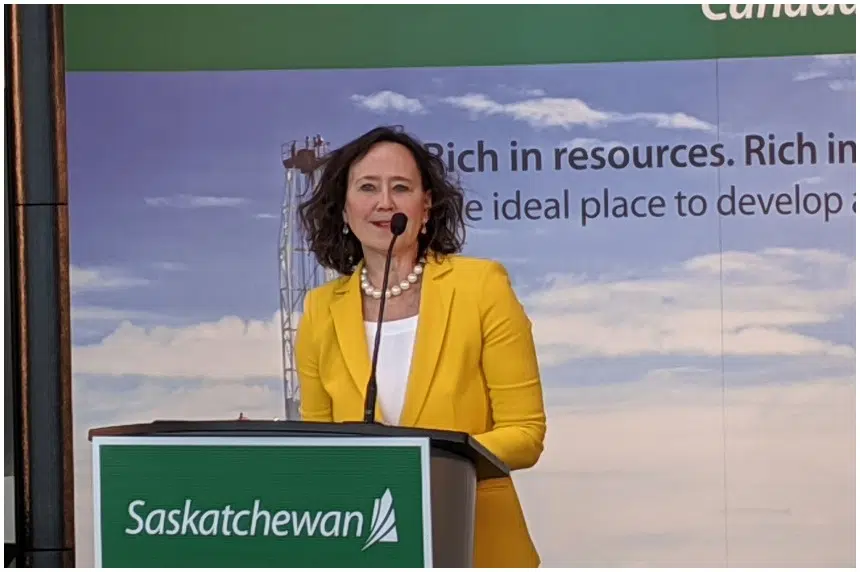Saskatchewan is going blue.
The province announced Monday it will be dishing out $100,000 for a report to look at ramping up work on a potential hydrogen hub in the Regina-Moose Jaw region that would focus on the use of blue hydrogen.
Whitecap Resources and Federated Co-operatives Limited will be donating an additional $50,000 to the report.
“We expect this report will rapidly accelerate the private sector’s interest in a hydrogen economy, both regionally and provincewide, by providing potential investors with a thorough analysis of what commercial-scale hydrogen opportunities would look like,” Energy and Resources Minister Bronwyn Eyre said during a media conference.
Eyre said the province is a world leader in carbon capture utilization and storage (CCUS) and added there should be reason for companies to invest in Saskatchewan once the report is completed by next year.
If built, the hydrogen hub in the Regina-Moose Jaw region would have a strong emphasis on the usage of blue hydrogen.
“(It) captures, stores or reuses the CO2 (carbon dioxide) produced from grey hydrogen using carbon capture utilization and storage technology, and that’s where Saskatchewan comes in,” added Eyre.
The Saskatchewan government announced in 2021 several new policy commitments to advance CCUS projects, which included advancing opportunities for an infrastructure hub in that area.
That included a memorandum of understanding signed between Whitecap Resources and FCL in October 2021 to explore opportunities around CCUS.
Eyre added CCUS projects are the way to go in the future when it comes to lowering our CO2 emissions.
“Saskatchewan is a world leader in CCUS and enhanced oil recovery (EOR). If lowering CO2 is your goal, EOR is your man,” Eyre explained.
“Leading international environmentalists agree that countries cannot meet global climate targets without CCUS and EOR together. EOR is also currently the only way to generate revenue from carbon capture and storage. From our perspectives, there are clear natural synergies between CCUS, EOR and hydrogen.”
The idea for the hub would be for everything to align with CCUS infrastructure and allow for the development of a commercial-scale hydrogen supply and demand chain in the province.
The report is expected to be released next year.











